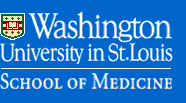


 |
 |
 |
|
|
Lab Cultures To get more minorities in scientific research, first get them in the laboratory. |
||||||
|
Miriam Ortiz works with her mentor, Barak Cohen, PhD, assistant professor of genetics. 
Biology major changes her mind: "Research is not something that scares me anymore. I didn't realize that scientists do not work alone. A lot of research is a team effort, with support from mentors, graduate students and technicians." |
Fewer than 3 percent of PhDs awarded in science, mathematics and engineering go to African-Americans. For Latinos, the numbers are only slightly better. Nationwide, research institutions struggle to entice minorities to obtain advanced science degrees. "The problem is pervasive," says Richard K. Wilson, PhD, director of the School of Medicine's Genome Sequencing Center (GSC). But now a program can at least lure them into the lab. With funding from the National Human Genome Research Institute, the GSC brought eight promising college students — all minorities majoring in the sciences — to Washington University this summer, where they received their first independent laboratory experience and close mentoring as part of the new Opportunities in Genomics Research program.
Devin Luckett and his mentor, Susan K. Dutcher, PhD, interim head of the Department of Genetics and professor of cell biology and physiology, compare alga cultures in the lab. "We are tremendously excited about the program and its prospects for exposing bright young students to PhD careers in research, particularly in genetics, and preparing them for top PhD or MD/PhD programs," Wilson adds. "During the eight weeks the students were here, you could sense a change in their thinking. They came away with a much better idea of how basic research forms the foundation for advances in medicine. They were excited, and we were excited." The GSC has been involved in outreach efforts to minorities for years, but those focused exclusively on students in kindergarten through high school. The new emphasis on undergraduates is intended to reach students at a time when they are making career choices. The lack of minorities pursuing PhDs in the sciences is a multifold problem, according to Cherilynn R. Shadding, PhD, director of outreach for the GSC. "Certainly, there's a lack of minority role models — you just don't see a lot of minority scientists out there to begin with," says Shadding, who earned her PhD in physiology from Meharry Medical College in Nashville. "Also, many undergraduate minority students are focused on pre-med, and research is not seen as an attractive career path. "But we need to find ways to encourage these students," she adds. "They are an untapped pool of talent, and they bring a lot of enthusiasm and a diversity of ideas and solutions to help answer the many questions posed by science today." The students were assigned independent research projects and paired with mentors in the Department of Genetics. Having this research experience takes away any misconceptions the students have about what research is like. "They come here, and they see that real lab experience is not like it is in class," Shadding says. "They're asking real questions to which no one knows the answer. That's the difference." The experience got Olivia Knowles excited about genetics. A Washington University biology major, she has aspired to be a doctor since she was a little girl. She grew up watching doctors treat patients on TV, played doctor with her dolls and, when her younger sister was seriously ill, Knowles, then nine, was prepared to cure her herself. But Knowles also was drawn to the laboratory. In high school, she joined the chemistry club, entered a regional titration competition and took third place. Despite her increasing knowledge, Knowles never seriously considered a career at the bench — until this summer. "The program really opened my eyes to the possibilities of pursuing a combined MD/PhD," says Knowles, who just began her junior year. Even though she likes her laboratory courses in college, Knowles says she was intimidated by laboratory research. She wondered how scientists come up with new ideas and how they know what to do, particularly if an experiment does not work the way it's supposed to. "My mentors, Rob Mitra and Todd Druley, were incredibly supportive and so willing to help me," she says. Four days a week, she studied excessive mutations in the p53 gene, known to be involved in cancer; one day a week, she shadowed Druley, a hematologist-oncologist at St. Louis Children's Hospital, who also works in Mitra's lab. "Research is not something that scares me anymore," Knowles says. "I thought you had to be absolutely brilliant to attempt research. What I didn't realize is that scientists do not work alone. A lot of research is a team effort, with support from mentors, graduate students and technicians."
Olivia Knowles with her mentors, Rob D. Mitra, PhD, assistant professor of genetics, right, and St. Louis Children's Hospital hematologist-oncologist Todd Druley, MD. A good mentor is "absolutely essential" for any student who wants to pursue a graduate degree in the sciences, emphasizes Susan Dutcher, PhD, interim chairman of the Department of Genetics and professor of cell biology and physiology, who served as a mentor for Devin Luckett, a sophomore microbiology major at Purdue University. Luckett studied the green alga Chlamydomonas to map mutations in genes that code for cilia, hairlike structures on the surface of the alga's cells. Almost every cell in the human body has cilia, and defects in their function are linked to genetic disorders that affect the ear, nose, sperm, placement of internal organs and number of fingers and toes. "Mentors expose students to a different way of thinking and provide guidance and encouragement along the way," Dutcher says. "Some students become unraveled when an experiment does not turn out the way they expected. A good mentor can help the student get back on track and think about what they want to do next. Science is a long-term project." The students also received individual career counseling about the classes they need to take as undergraduates, a GRE preparation course, and advice about graduate schools they should consider applying to. Luckett, who now has his eye on a PhD in bioinformatics or computational biology, says the experience was tremendous. "No one has ever sat me down before and said, 'This is what you need to do.' I found that advice very, very useful." Miriam Ortiz, a senior at the University of El Paso in Texas, says her summer experience has given her more confidence in the laboratory. She had planned to become a laboratory technician but now is serious about getting a PhD. "I thought after I graduated from college, I would go straight into the workforce," Ortiz says. "But now I'm focusing on getting a PhD. Working with graduate students and seeing what they do every day makes me see that I can do that, too." Students in the program will be able to return each summer until they graduate from college, as long as they remain in good academic standing. Next year, the GSC plans to add an additional four slots, for a total of 12 students. "Their experience here is valuable because they will need it to be competitive for a graduate program at Washington University or Harvard," adds outreach director Shadding. "They will be competing against everyone — not just fellow minority students — so they need as many opportunities as possible to stand out." |
|||||